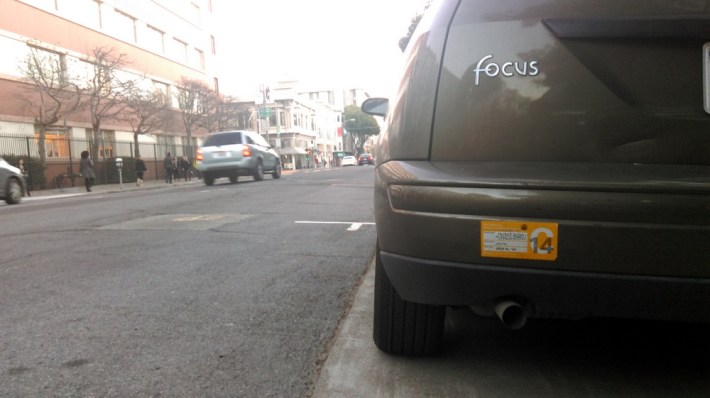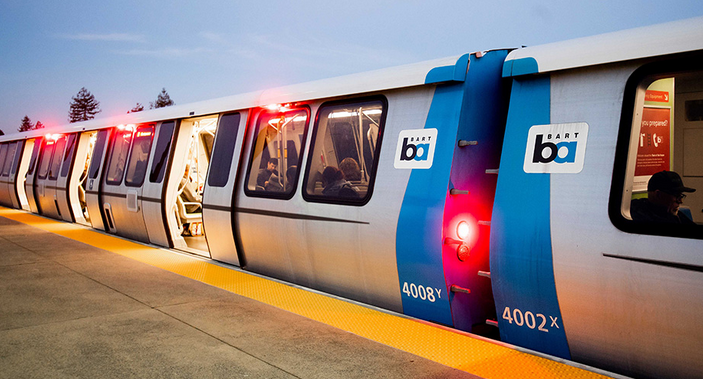Residential parking permits in San Francisco are a steal. At just $110 a year, or about 30 cents a day, the costs come nowhere near the market value for use of prime SF real estate. The fee is especially favorable compared to the single-day permit rate, which is 40 times higher. That means people who only occasionally need to park a car in their neighborhood pay a lot more per hour than people who take up street space every day for personal car storage.
Parking permits may be a small step toward regulating the free-for-all parking situation that reigns on 90 percent of SF's streets. But even under the current permit fee system, year-round car storage remains severely underpriced, amounting to a vast subsidy that leads car owners to fill up every inch of available curb space. More traffic, double-parking, and slower transit are the inevitable results.
The discrepancy between short-term permits and annual permits was recently noted by Michael Smithwick, who lives in the proposed RPP Area Q, expected to be approved by the SFMTA soon.
Smithwick said the price hike for short-term parking permits "unfairly discriminates against non-car-owning residents," which is "at least half of the households in the proposed area."
The discrepancy "is in conflict with SFMTA’s own policies to reduce car trips in favor of other sustainable transit modes," Smithwick said, noting that non-car-owners can occasionally find permits useful when they rent a car or have visitors.
Even the lowest available rate of $8/day for a book of 20 parking permits is 27 times higher than the annual rate, and a maximum of 20 permits per year can be purchased at that rate.
"Because the market prices for parking in San Francisco are so high, free and cheap parking in the city’s 475,000 on-street spaces (which amount to a total length greater than California’s coastline) are probably the biggest subsidy the city provides for its citizens," said UCLA professor and parking policy guru Donald Shoup. "A city’s budget should reflect its policies, and free parking on so much city land suggests a car-first policy."
Under current law, meters are the only way the city can put a better price on curb parking. State law limits the price of residential parking permits to the cost of administering the program, preventing rates from reflecting the true market value.
SFMTA spokesperson Paul Rose said that the one-day rate is so much higher than the annual rate because the staffing costs are higher on a per-permit basis. The $12 daily rate for a visitor permit, he acknowledged, "is much closer to market rate cost for parking all day."
"We definitely do want to evolve the RPP program so it reflects the changing reality of how San Franciscans and visitors live and work, including the changing nature of car ownership," said Rose. "We are doing so by trying to offer more options for visitors to obtain permits/purchase parking as needed. We are also working to make sure all users can make use of that parking supply occasionally, even if they don’t own a car. As a Transit-First city and forward-looking agency, we do want to support car-free and car-light households. The best way we can do that is by ensuring occasional drivers can access and pay for parking when needed."
While the SFMTA's hands are tied when it comes to parking permit rates, the agency has taken some other steps to cap household consumption of curb space. It recently limited the number of parking permits to four per household. Within any given RPP zone, however, there is no neighborhood-wide cap on permits, so the number of "hunting licenses" doled out may far exceed the actual number of parking spaces in the zone.
The agency is also expanding other programs to reduce demand for parking and encourage turnover, such as SFpark's demand-based parking pricing at some meters as well as on-street car-share.
"Non-car owners have legitimate needs for curbside parking near their homes," said Smithwick, "and deserve the same access as car owners."






